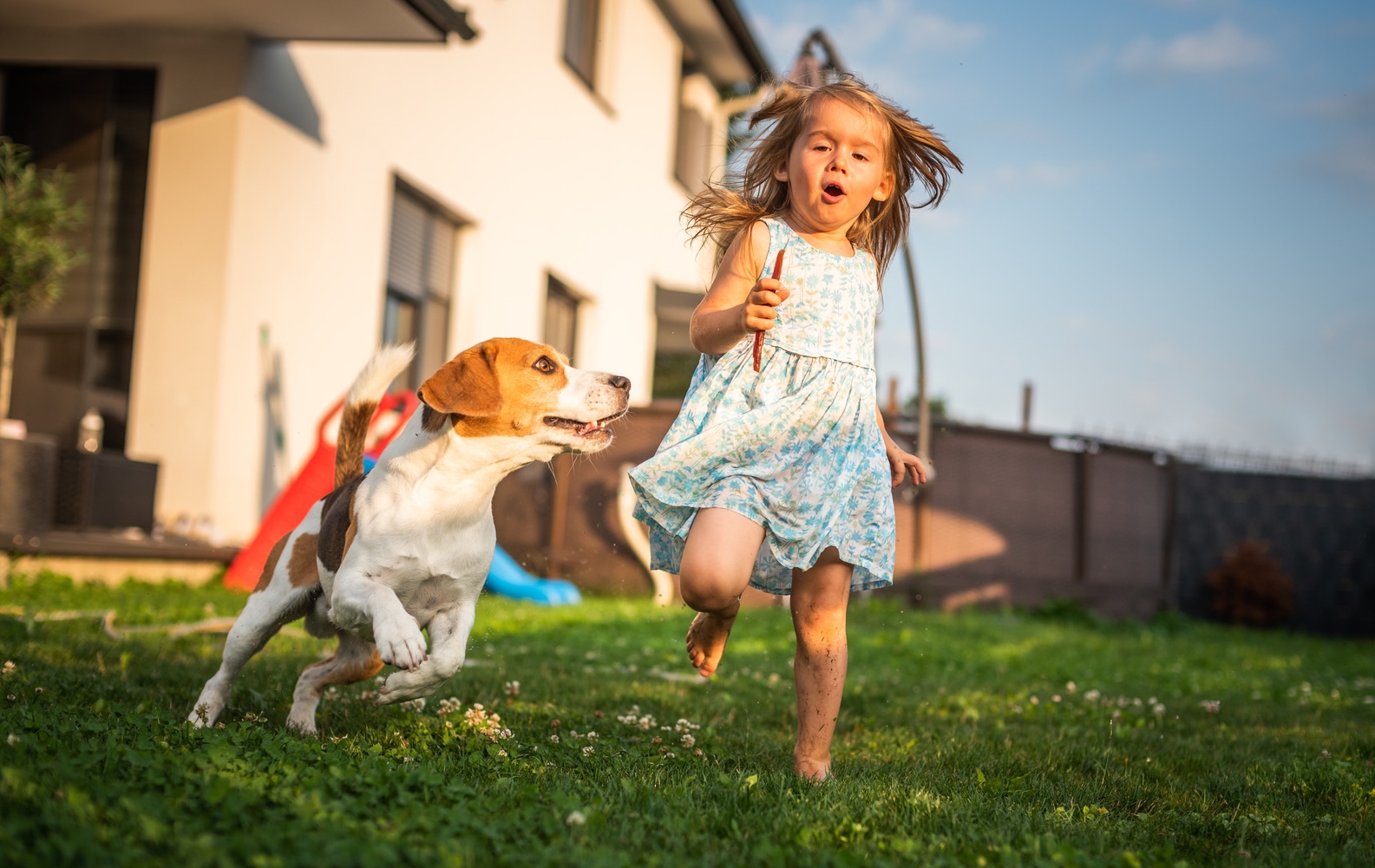As far as choosing a dog breed goes, it’s important to understand the behavioral variations that exist among different breeds. After all, each breed has its own unique characteristics, temperament, and tendencies.
If you’re planning to get a dog for your autistic child, then knowing which breeds to avoid is equally crucial as well. This article will help you out.
Behavioral Variations Among Breeds
A study involving 13,700 Finnish pet dogs revealed significant differences among breeds in the occurrence of certain behaviors, including aggression. It’s important to consider these variations when selecting a dog breed, especially for individuals with autism who may have specific needs or sensitivities.
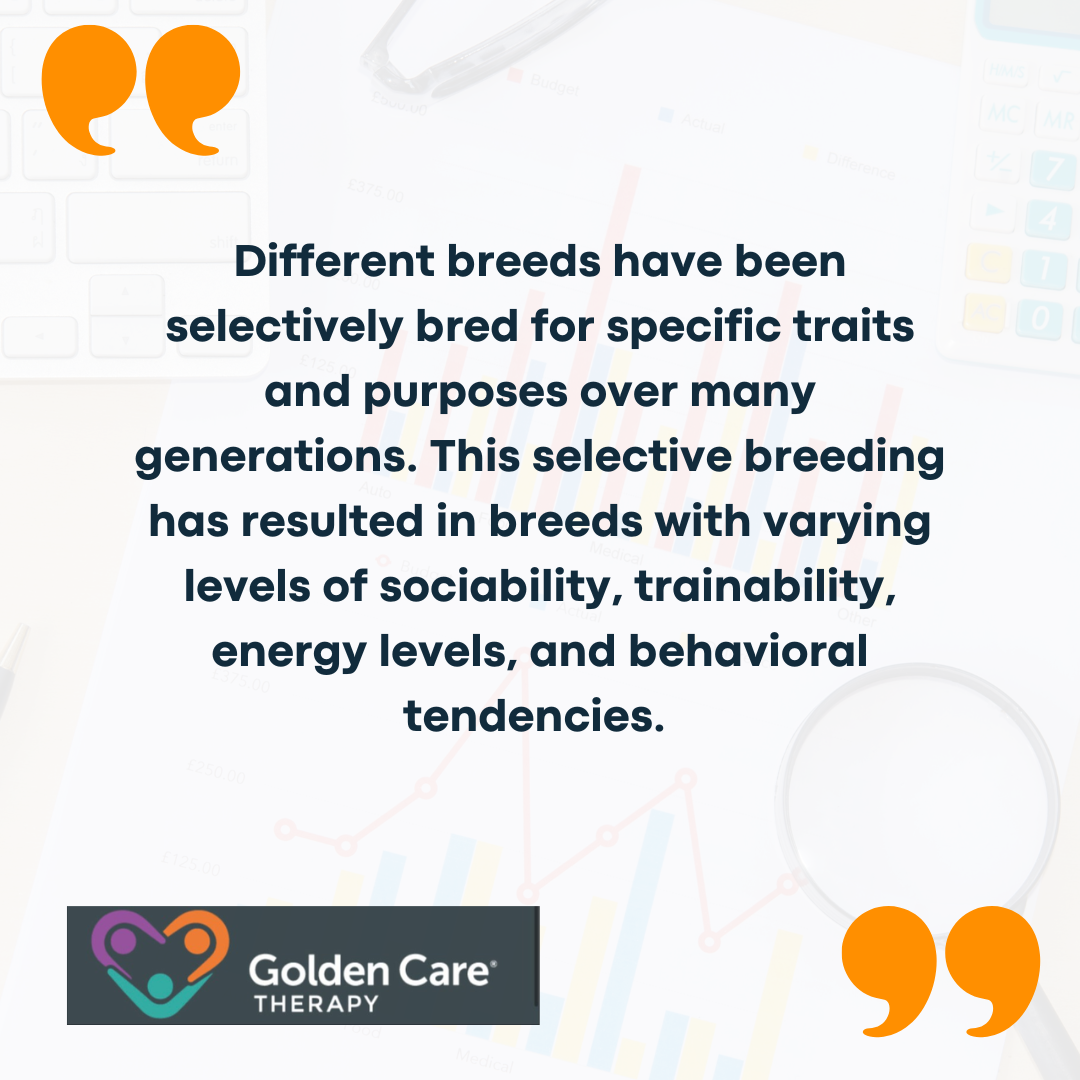
Understanding these variations can help in choosing a breed that aligns with the specific requirements and preferences of individuals with autism.
Worst Dog Breeds for Autism
When considering a dog as a companion for a child with autism, it’s important to be aware of certain breeds that may not be the most suitable match. While every dog is unique, certain breeds may pose challenges in the context of autism.
Without further ado, here are the worst dog breeds you should avoid if you have an autistic child:
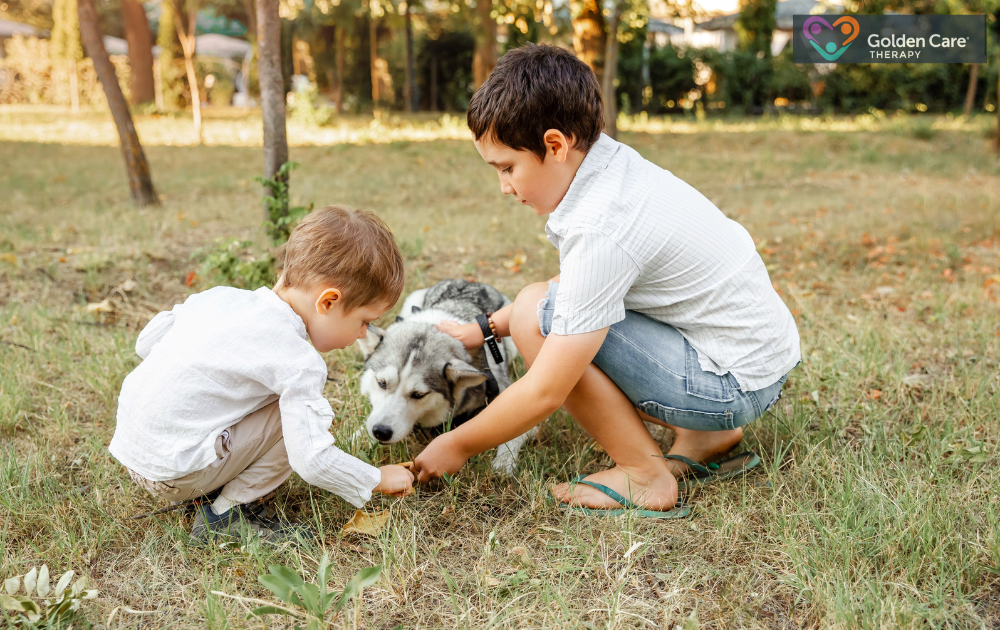
Siberian Huskies
Siberian Huskies are known for their striking appearance and energetic nature. Originally bred for sled pulling, these dogs have a strong prey drive and a mischievous streak.
While they can be friendly and affectionate, their high energy levels and independent nature may not be the best fit for children with autism who thrive in a calm and predictable environment.
Akita Dogs
Akita dogs are majestic and loyal companions. They are known for their unwavering devotion, noble stance, and powerful presence. However, their strong-willed and sometimes aggressive nature can pose challenges when it comes to interacting with autistic children.
Akitas require experienced and consistent training to ensure they develop into well-behaved pets. Their independent and stubborn nature may not be the best match for the specific needs of children with autism.
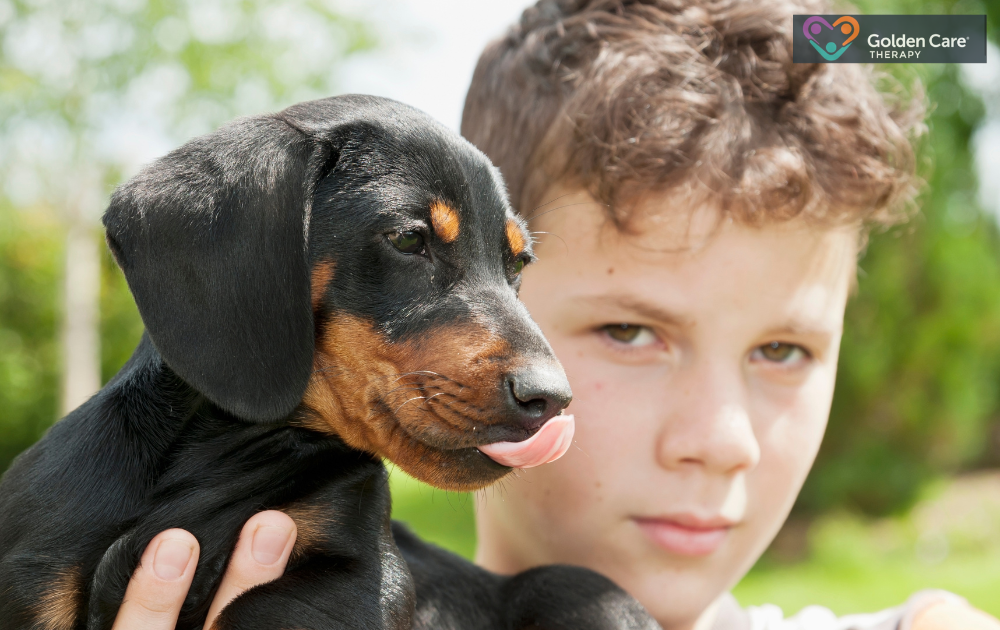
Dachshunds
Also known as wiener dogs, Dachshunds are beloved for their long bodies, short legs, and endearing personalities. They are loyal and affectionate companions. However, their fragility and susceptibility to back problems make them less suitable for families with autistic children.
The potential for accidental injury is a concern, as autistic children may not always be aware of a dog’s physical limitations. While Dachshunds can be wonderful pets, their fragility makes them one of the worst dog breeds for children with autism.
Beagles
Beagles are known for their keen sense of smell and their use in hunting. However, they are also notorious for their barking tendencies. Beagles have a distinct bay or howl they use to communicate, which can be quite loud and persistent.
This constant vocalization may not be suitable for individuals with autism who are sensitive to noise.
Miniature Schnauzers
Miniature Schnauzers are intelligent and energetic dogs, but they are also known for their vocal nature. They have a tendency to bark at various stimuli, such as strangers, other animals, or even noises inside the house.
This excessive barking can be a challenge for individuals with autism who may find it difficult to cope with the constant noise.
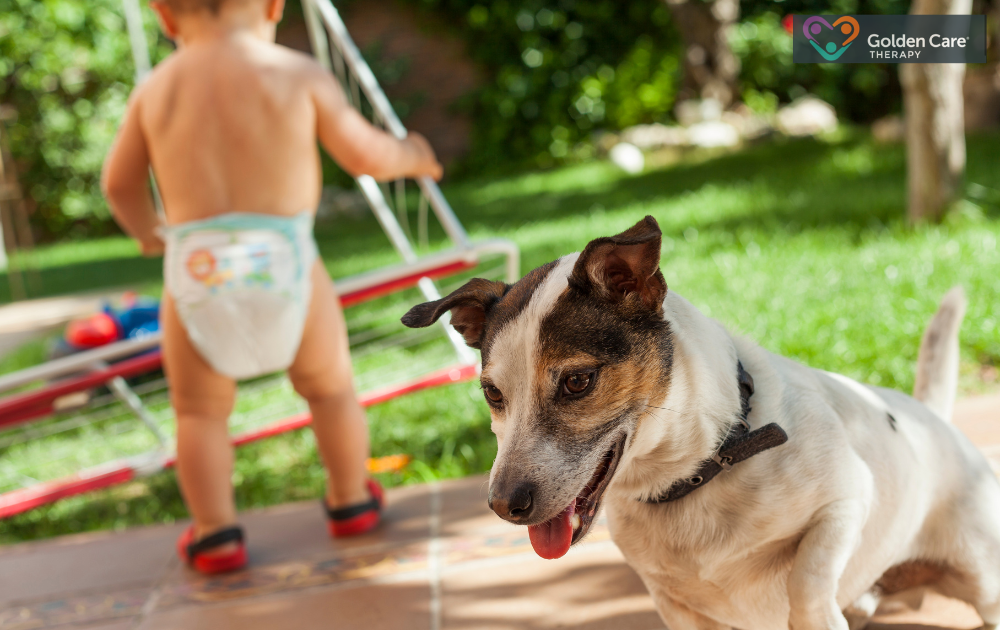
Jack Russell Terriers
Jack Russell Terriers are small but highly energetic dogs. They are known for their boundless energy, agility, and intelligence. While these traits make them suitable for certain activities and tasks, they may not be the best fit for individuals with autism who may struggle to keep up with their exercise needs.
These terriers require ample physical and mental stimulation to thrive. Without sufficient exercise and mental enrichment, they can become restless and exhibit behavioral problems.
For individuals with autism who may have limited energy or mobility, meeting the exercise requirements of a Jack Russell Terrier can be challenging.
Australian Shepherds
Australian Shepherds, also known as Aussies, are intelligent, active, and highly energetic dogs. They are often sought after for their herding abilities and versatility. However, their high energy levels, intense focus, and sensitivity to the environment can be overwhelming for some individuals with autism who may struggle with sensory overload.
Aussies require regular exercise and mental stimulation to prevent boredom and behavioral issues. Their herding instincts may also manifest in nipping or herding behaviors, which can be unsettling for individuals with autism, particularly children.
The energy and intensity of Australian Shepherds may not be suitable for individuals who require a calmer and more predictable environment.
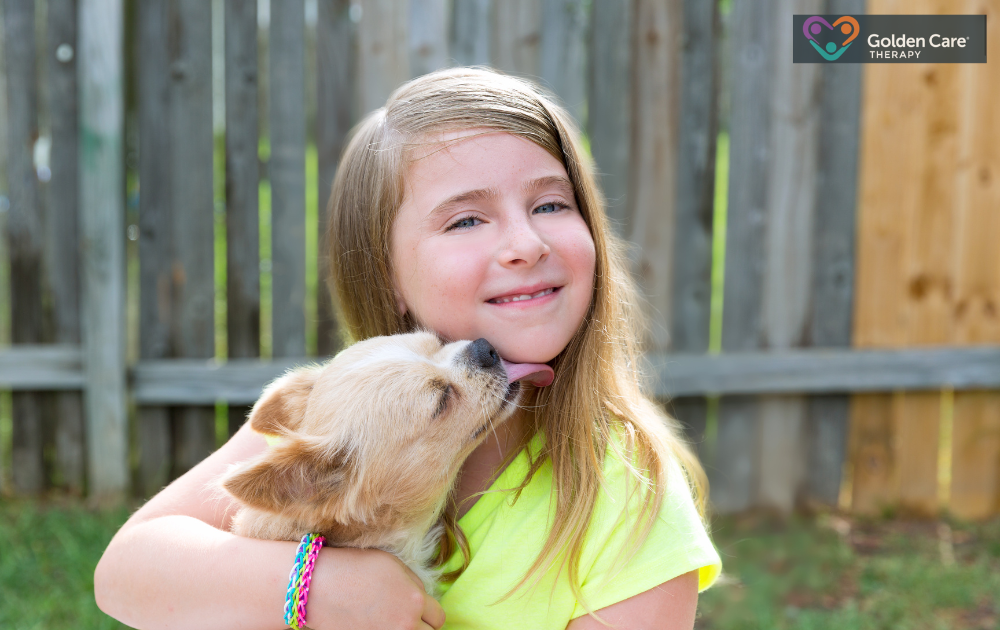
Chihuahuas
Chihuahuas are small dogs with big personalities. They are known for their feisty nature and tendency to bark excessively, especially when they feel threatened or anxious.
Chihuahuas have a high-pitched bark that can be quite piercing, which may be overwhelming for individuals with autism who are sensitive to loud noises.
By understanding the temperament, energy levels, and exercise needs of different dog breeds, individuals and families can make informed decisions when selecting a dog that will be a compatible and beneficial companion for someone with autism.
We highly advise consulting with professionals, such as dog trainers or autism specialists, to ensure the best match between the individual with autism and their canine companion.
Research continues to shed light on the neurological basis of sensory issues in autism, offering hope for more targeted and effective therapies in the future. By recognizing and addressing sensory processing difficulties, we can improve the quality of life for individuals with autism and their families. If you’re seeking specialized ABA therapy in New Jersey, Indiana, Georgia, and New York, Golden Care offers comprehensive services tailored to meet the unique needs of each individual. Contact us to learn more or book a consultation today.
Sources:
https://usserviceanimals.org/blog/worst-dog-breeds-for-autism

